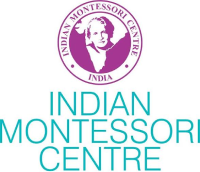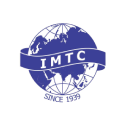METHODOLOGY
- Home
- Methodology

The Montessori system of education is both a philosophy of child development and a rationale for guiding the child’s growth. It is based on the child’s developmental needs for freedom within limits, as well as, a carefully prepared environment which guarantees exposure to materials and experiences. Through this, the child develops intelligence as well as physical and psychological abilities. It is designed to take full advantage of the children’s desire to learn and their unique ability to develop their own capabilities. The child needs adults to introduce him to the possibilities of his life. But it is the child who must determine his response to such possibilities.Can the Montessori philosophy get outdated?Montessori practice is always up-to-date and dynamic because observation and the meeting of needs is continual and specific for each child. When physical, mental, spiritual, and emotional needs are met, children glow with excitement and a drive to work with enthusiasm, to learn, and to create. They exhibit a desire to teach, help, and care for others and for their environmentThe high level of academic achievement so common in Montessori schools is a natural outcome of experience in such a supportive environment. The Montessori method of education is a model which serves the needs of children of all levels of mental and physical ability. The children live and learn in a mixed-age group which is very much like the society they will live in with the adults.Today Montessori teacher training centres and schools exist on all continents. There are Montessori parenting classes, infant communities, “children’s houses” (for age 3-6), and classes for children up to age eighteen in public and private schools. Montessori assists in the work with gifted and talented children. It also helps in programmes for children with developmental disabilities of all kinds.
Many parents use Dr. Montessori’s discoveries to raise/educate their children at home.Main thoughts of Montessori education-Children are to be respected as different from adults but as individuals. They are all not exact replicas but individually different.-The children possess an unusual sensitivity and intellectual ability to absorb and learn from their environment. The child’s Will has to be different in order to achieve this. Their powers are unlike those of the adult both in quality and capacity.-The most important years of a child’s growth are the first six years of life when unconscious learning is gradually brought to the conscious level.-The child has a deep love and need for purposeful work. He works, however, not as an adult for completion of a job, but the sake of performing the activity itself. It is this activity which enables him to accomplish his most important goal: the development of himself – his mental, physical, and psychological powers.Dr. Montessori gave the world a scientific method, practical and tested, It intends bringing forth the very best in young human beings. She taught adults how to respect their individual differences, and to emphasize on social interaction and the education of the whole personality rather than the teaching of a specific body of knowledge.One reason is that it brings about development in every sense of the word – truly an enveloping development. There is development of the body – physical development – as the child performs that involve movements of the fingers and large movements of the body. There is spiritual development as the child seeks for knowledge and is encouraged in this seeking – he develops the spirit of enquiry.

There is intellectual development as the child gains the knowledge he has sought. There is linguistic development as the child speaks freely, is listened to,. Thus he learns to express himself. There is emotional development as the child feels the fullness of positive emotions at work completed and ends achieved. There is social development as children show consideration for each other as they share the material. The child develops the ability to concentrate for longer and longer periods. Through it all, the child is growing as an individual, not as an insignificant member of a group.The Montessori method gives the child “inner work” and “outer work,” both of which he needs in his efforts to grow and develop into an adult. It develops his will, his intellect, and his motor control, separately and together. His senses become efficient servants of the intelligence apart from supplying all experiences. These experiences are the raw materials for shaping his personality.
He has opportunity for intelligence to focus on the use of his senses. It gives him a strong foundation in Mathematics and Language. It gives him the ability to work, and helps him to be a responsible person. The real sense of the term ‘social interaction’ is seen in a Montessori House of children. Obviously the child is happy.The method sounds different because it has a macrocosmic vision of Life of humans. It is not only ‘teaching’ but includes teaching. It is more of a learning method than a teaching method.



